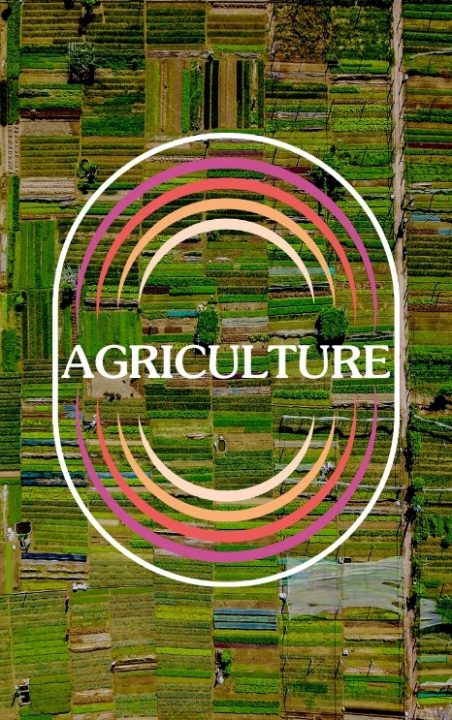The interconnectedness of agriculture and societal resurgence is a theme that resonates deeply within the principles of Bahá’í teachings. Roy Steiner’s perspective on the topic brings to light the multifaceted role of agriculture not merely as a means of sustenance but as a pivotal instrument for global reconstruction. The exploration of agriculture’s significance in this context prompts a deeper examination of its implications on humanity’s journey toward collective progress.
At the heart of Bahá’í teachings lies the understanding that material wealth must be harmoniously balanced with spiritual development. This principle underscores the urgency of addressing the contemporary challenges faced by societies across the globe—climate change, food insecurity, and social inequity. Steiner emphasizes that agriculture can serve as a foundational pillar in rectifying these societal maladies. By fostering sustainable agricultural practices, we not only enhance food production but also cultivate a sense of stewardship towards the Earth.
In understanding agriculture’s importance, one must recognize its historical roots. Agriculture has not only been the bedrock of human civilization but has also played a significant role in shaping societal structures and cultural identities throughout various epochs. Steiner’s insights encourage reflection on this historical continuum, suggesting that as we navigate the complexities of the modern world, we must revert to and learn from our agrarian past. A renaissance of agricultural practice, therefore, can serve as a bridge to our future, amalgamating ancient wisdom with contemporary innovations.
The Bahá’í view posits that the elevation of agriculture transcends mere production. It emphasizes a holistic approach that intertwines technological advancements with ethical considerations. Steiner advocates for practices that are not only environmentally sustainable but also socially inclusive. Herein lies a fundamental tenet of Bahá’í teachings: the imperative for unity and cooperation amongst all nations and peoples. In agricultural endeavors, this translates to fostering collaboration among communities, sharing knowledge, and ensuring equitable access to resources.
Moreover, Steiner points out the psychological and spiritual dimensions of agriculture. Engaging in farming can promote a sense of purpose, belonging, and responsibility towards one’s community and environment. Such connections enhance individual well-being, fostering a deeper appreciation for the sanctity of nature. This relational aspect urges society to redefine its understanding of success, steering away from consumerism towards a more community-oriented mindset. The process of working the land can thereby become a transformative experience, nurturing bonds between individuals, families, and the broader environment.
While Steiner’s discourse on agriculture champions its role in rebuilding society, it is equally essential to address the ethical implications of agricultural practices in our contemporary milieu. The rise of industrial agriculture, characterized by monocultures and the extensive use of chemicals, poses significant threats to biodiversity and the health of ecosystems. This not only jeopardizes the planet but also underscores systematic inequalities, where marginalized communities suffer the most profound consequences. Bahá’í teachings advocate for the preservation and nurturing of the earth, thereby emphasizing sustainable and regenerative agricultural methods that align with ethical stewardship of our natural resources.
Transitioning towards sustainable agricultural practices, however, requires a paradigm shift. This shift necessitates an acknowledgment of interconnectedness between all life forms and the understanding that human beings are but one thread in the intricate tapestry of existence. Steiner’s advocacy for agroecology offers a viable framework for such transformation. Agroecological methods, grounded in principles of ecology, promote biodiversity, optimize interactions, and regenerate local resources, thus fostering resilience in the face of climate change.
The implementation of these practices also requires the will to invest in education and capacity-building among farmers and communities. The Bahá’í principle of education holds a pivotal role in ensuring that individuals are equipped with the necessary knowledge and skills to engage in sustainable agriculture. Educational initiatives should not only address technical aspects but also emphasize critical thinking and ethical decision-making, ultimately cultivating a generation of environmentally conscious stewards of the land.
Furthermore, the socioeconomic dimensions of agriculture cannot be overlooked. As rural economies are often at the forefront of agricultural endeavors, the revitalization of these areas can play a critical role in addressing global disparities. By investing in rural infrastructure and creating markets for local produce, there exists the potential to empower communities economically while also promoting sustainable practices. Steiner’s vision of agriculture inherently supports the notion of community economic development with an emphasis on sustainability and social equity.
Finally, the collective potential of individualized actions towards agriculture’s role in rebuilding the world must be acknowledged. Each effort, no matter how minor, contributes to a grander movement towards a more equitable and sustainable future. Encouraging individuals to partake in gardening, community-supported agriculture, or even advocacy for policy change can cultivate a sense of agency. The ripple effects of these actions can lead to significant societal shifts, reinforcing the belief that everyone possesses the capacity to effect change.
In summary, Roy Steiner’s insights into the intersection of agriculture and societal rebuilding serve as a catalyst for understanding the profound implications of our relationship with the land. The Bahá’í teachings underscore the essential integration of sustainability, ethical stewardship, and community collaboration in agricultural practices. As society grapples with the complexities of modern issues, the lessons drawn from agriculture can illuminate paths toward a resilient, equitable, and harmonious world. By fostering a collective approach to rebuilding through agriculture, humanity can aspire to transcend current crises, embracing a future characterized by unity, sustainability, and holistic progress.
